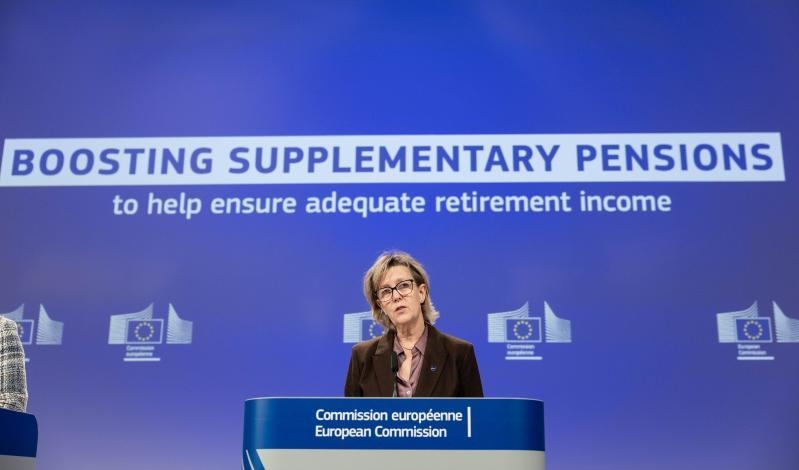BRUSSELS – The European Commission wants to ensure that future generations have “adequate living conditions in old age” in the European Union (EU), as part of a commitment to complementary pensions.
“What matters to us here is not so much the estimate of how much this can generate in gains, it is not so much a question of value, and above all this is also something that will be applied over time, but what we clearly want is to promote this trend of creating conditions for pensions to be adequate for future generations,” said today the European Commissioner for Financial Services and the Union of Savings and Investments, Maria Luís Albuquerque.
In response to Lusa at a press conference in Brussels on the day the institution released proposals for automatic complementary pensions and professional funds, the official pointed out that the European Commission is “concerned about those who are younger and whose pension, if they remain solely subject to the public system, may be very low to guarantee them adequate living conditions in old age.”
“Therefore, what we really want is to move in that direction and we want member states to follow these recommendations because this is what will ensure a better life for future generations when they reach retirement,” she pointed out.
Maria Luís Albuquerque acknowledged the low salaries in Portugal and, although she did not speak with Portuguese officials about the proposals, indicated that “people with the lowest salaries are those who will be at greater risk of poverty in pensions if nothing is done to address this issue.”
“It is even more important if we think about that part of the population or in the member states where that part of the population is more relevant,” she added.
When asked by Lusa whether companies in Portugal could offer this type of plans for complementary pensions, Maria Luís Albuquerque concluded that “there are multiple examples of how such a system can be implemented, encouraging the participation of all companies, regardless of their size, and also naturally to cover those workers who have less traditional forms of self-employment, with less traditional forms of participation in the labor market, and who certainly will also need to be protected when the time comes to receive a pension.”
The European Commission today called on EU countries to adapt their pension systems to promote complementary mechanisms – such as retirement insurance and retirement savings plans (PPR) – which are little used in Portugal, suggesting automatic enrollment and professional funds.
The Portuguese system, which is mainly based on the public pension of Social Security, faces similar challenges to other EU countries such as the rapid aging of the population, future pensions that are likely to be lower, low participation in complementary plans, and irregular contribution careers.
In light of such issues, Brussels is asking Portugal and other European countries to start using automatic enrollment in complementary pension plans, with the option of free exit, which would involve companies offering such plans and workers contributing small percentages of their salary to such savings.
These are just recommendations – which must be approved by the Council and Parliament – as it is a national competence.
The Commission estimates gains of more than one trillion euros if EU citizens start applying their savings in complementary mechanisms. (20/11/2025)
 go to the original language article
go to the original language article
This article has been translated by Artificial Intelligence (AI). The news agency is not responsible for the content of the translated article. The original was published by Lusa.
